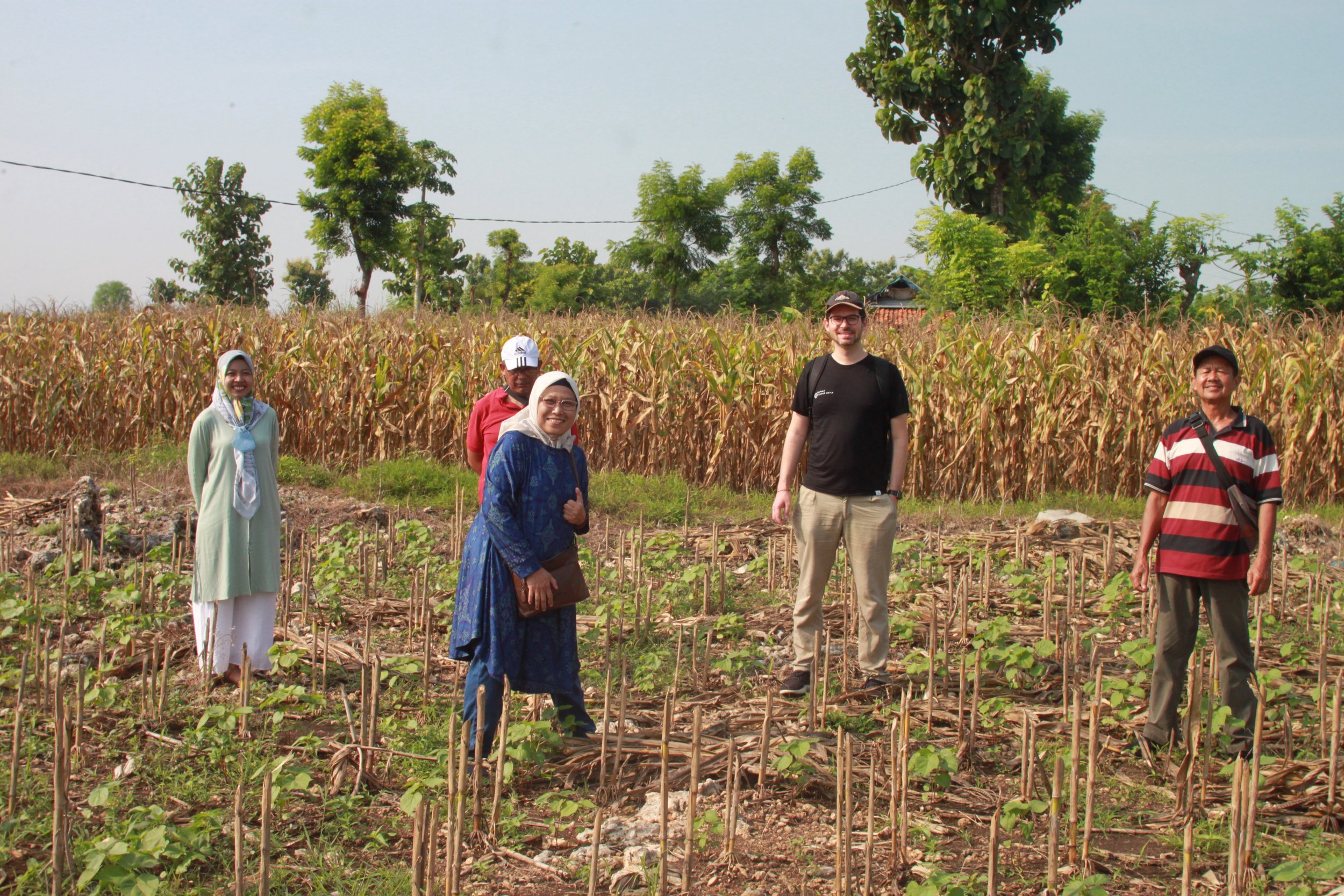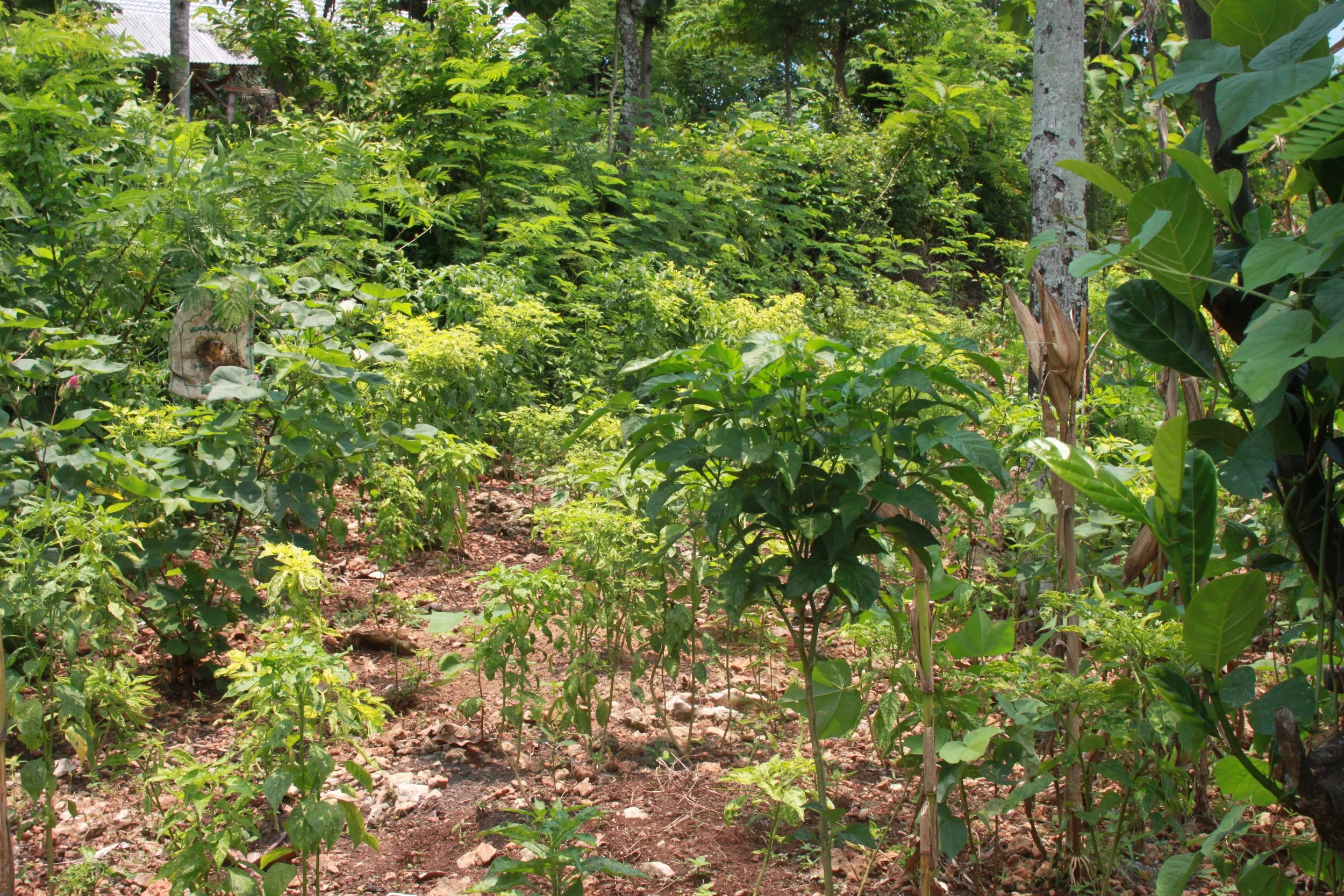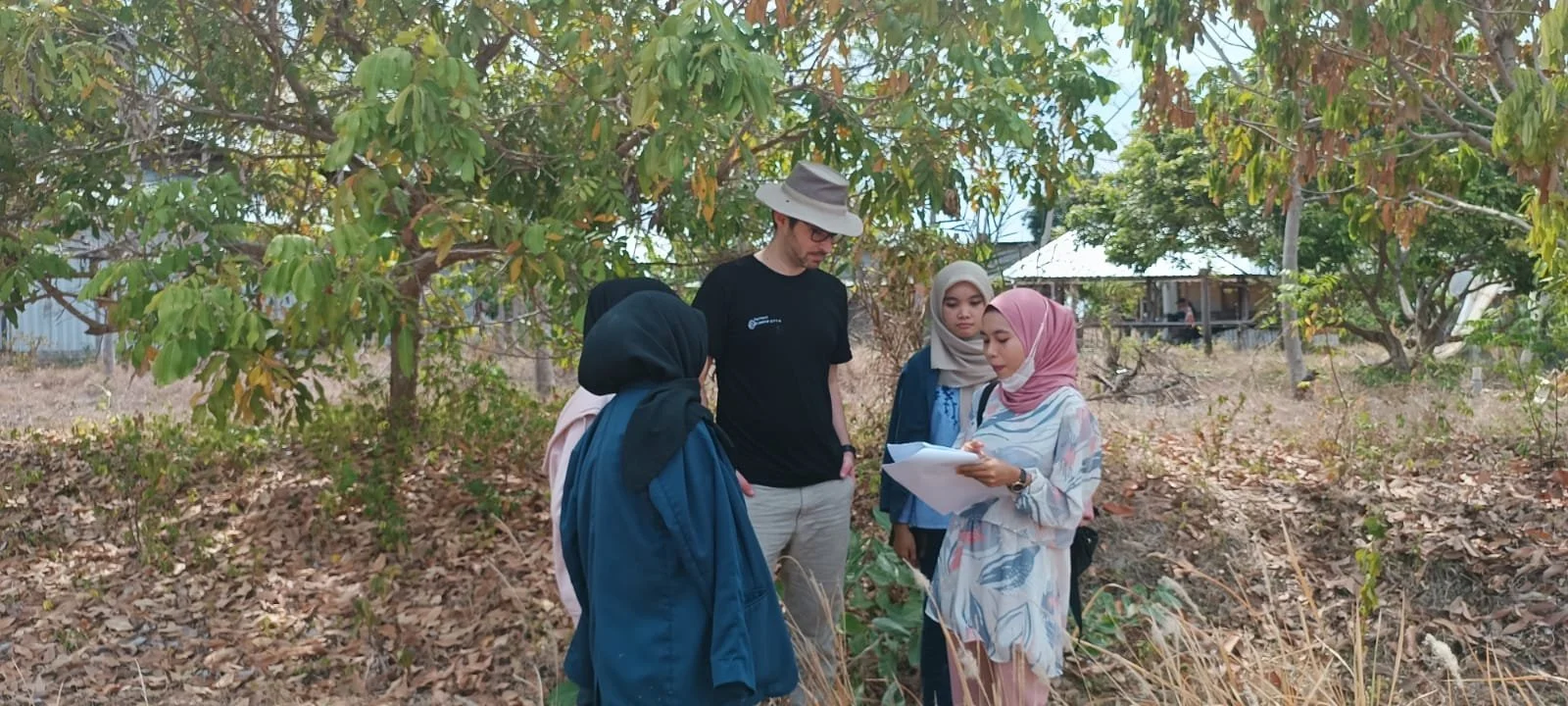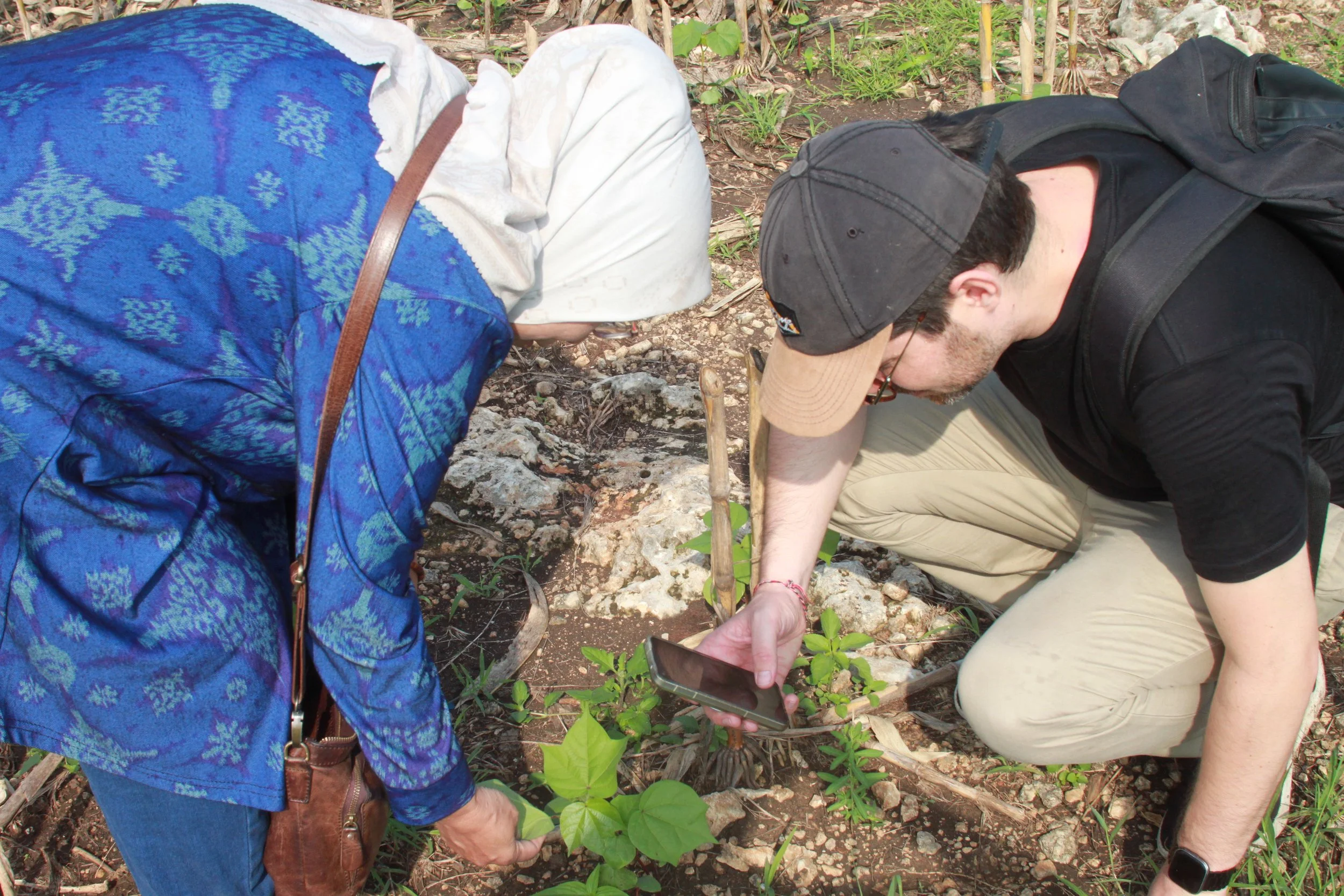The Power of (Bio)Diversity
How indigenous wisdom sparked collaborations with researchers and universities – exploring how we can boost smallholder farmers’ incomes and climate resilience.
Mbak Lina, Bertram and researchers from BRIN at one of our Mama Kapas sites in East Java.
One of the most important and powerful concepts we learned from indigenous communities across Indonesia is tumpang sari, or intercropping with a focus on biodiversity. The idea is that farmers grow anywhere between three to over 30 different crops within the same plot, mimicking the healthy ecosystem of a forest.
The benefit: The increased biodiversity both above and below the ground actually makes the whole system stronger and more resilient against drought, pests, and erosion. Additionally, it ensures that there is always something for the farmers to harvest, eat or sell.
But this tumpang sari philosophy does not only apply to agriculture. In fact, it inspired us at Rumah SukkhaCitta Foundation to ask how we ourselves can build an ecosystem of partners that can help us amplify our work to regenerate depleted soils and get farmers ready for climate change.
A diverse ecosystem of researchers, universities and companies – together creating something that is stronger than its individual parts.
One such example is the collaboration with Kopernik and their Wonderwomen program in Nusa Penida. In December 2023, we embarked on two additional research projects together with the University of Mataram in Lombok and a team of experts from the National Research and Innovation Agency (BRIN).
Tumpang sari at work! A rich diversity of plants grow together in the same plot - each fulfilling their own unique role, making the ecosystem stronger than its individual parts.
University of Mataram
In Lombok, we support a group of bachelor and master students to identify which kinds of crop combinations are the most beneficial to farmers – creating successful case studies to encourage farmers in the area to make the switch from monocultures and chemically intensive farming to regenerative practices.
To do so, the students have divided up a total of 1 ha into small plots of 10x10m, trialling different combinations of crops and natural fertilizers such as cow and goat manure, biochar, and compost. In the process, they’re tracking yields, costs and changes in soil health so we can identify best tumpang sari practices for farming communities in West and East Nusa Tenggara.
This research really matters as these two provinces have high rates of stunting, particularly challenging soil conditions and already face significant disruptions from climate change. Long phases of drought are followed by heavy rains, triggering flooding and landslides as the depleted soil cannot absorb the water. Making it increasingly difficult for farmers to grow nutritious food for their families.
Traditional farming practices such as tumpang sari offer a new sense of hope, as they were shown to improve the soil’s ability to absorb and retain water and boost resilience against pests, drought, and erosion. Making sure smallholder farmers can once again thrive and protect their land against the climate crisis.
Discussing the research plan with students from University Mataram (Lombok).
BRIN
At the same time, we’re working with cotton experts from the National Research and Innovation Agency (BRIN) to support our farming communities in East Java. Over the course of this season, they will work with a number of key farmers to refine local practices and establish a small cotton nursery – empowering the women to make their own, high quality seeds.
A major step to protect Indonesia’s farmers independence – learning from other countries where large corporations have put farmers in a dire situation with their patented GMO seeds.
More updates about the project will follow soon!
The BRIN researchers bring decades of experience with cotton cultivation, providing valuable insights on how our farmers can improve their practices and set up their own nurseries to remain self-sufficient.
Applying the tumpang sari philosophy to our own work has been a huge blessing and a source of renewed hope: Yes, there are ways to reverse soil degradation and protect vulnerable communities from the challenges of climate change.
The key is to find meaningful ways to work together and take action while we still can. Learn more about the program and how you can support it below.




